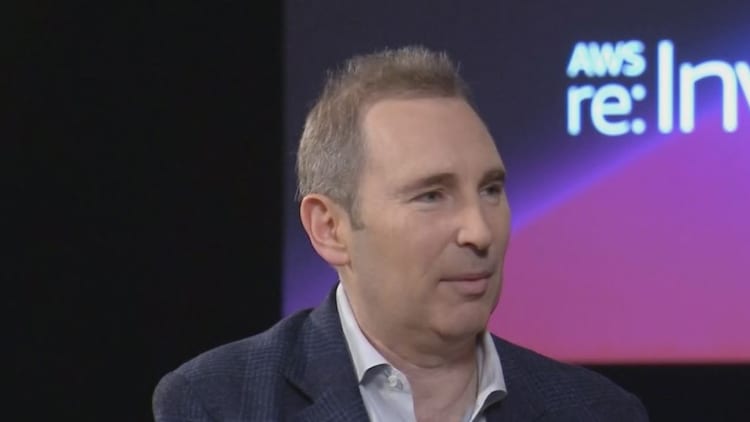Amazon cloud chief Andy Jassy said that during the first half of 2018, he was consistently getting requests from customers who wanted Amazon's help not just in the cloud, but also in their own data centers.
For some companies, there are regulatory concerns or privacy issues that limit their ability to use public cloud, while other businesses just aren't ready to abandon their own equipment and facilities. So Jassy was asked if Amazon Web Services could go out of its comfort zone and bring some of its advanced technologies to the on-premises world.
On Wednesday, he answered that question with a definitive yes.
At the AWS re:Invent conference in Las Vegas, Amazon introduced AWS Outposts, its boldest effort yet to take on legacy hardware vendors like Cisco, Dell and Hewlett Packard Enterprise by bringing AWS-branded boxes to traditional data centers.
Customers ultimately want "the lowest possible prices," Jassy said in a session with reporters. When asked whether the Outposts technology will eventually be able to run on data center equipment from the likes of Dell and HPE, Jassy said, "it's possible."
In prior years at re:Invent, AWS rolled out products to help clients move massive amounts of data into Amazon's data centers. They included a Snowmobile truck for packaging up data on hard drives and driving them to Amazon's facilities, and rugged Snowball devices for storing data that companies mail to AWS.
But AWS is now acknowledging that many companies want to stay on-premises.
The new Outposts hardware will come with some of the most popular AWS computing offerings and storage software, while a separate option will package virtualization technology from VMware.

The hybrid concept is one that AWS' top rival has already embraced. Microsoft, the second-largest public cloud provider, introduced Azure Stack in 2015, a set of tools that combined Microsoft's cloud technology with hardware from partners including Cisco, Dell EMC, HPE and Lenovo.
Amazon, which is starting with its own hardware, will deliver and install Outposts at customers' facilities and then provide maintenance, repair the hardware and automatically update the software. The systems can be as small as a single server and as large as multiple racks full of data-center gear.
The new approach will require Amazon to hire people focused on selling and servicing hardware.
"We're very comfortable running high volume, relatively low-margin businesses," Jassy said. "We know how to keep our costs low."
None of this is to suggest that AWS is slowing down its efforts to provide an increasing number of tools and services to its public cloud customers.
'Hundreds of data centers'
Amazon's other product launches on Wednesday included two blockchain services for developers focused on the distributed ledger technology and a file server product that works with Microsoft software.
Drawing on its chip-development group, AWS also said that it has built custom chips for artificial intelligence that will be available from its cloud, following the lead of other internet companies like Google and Alibaba.
And AWS announced a new product for building personalization features and recommendation systems for applications, a tool for training systems that use a trendy type of artificial intelligence called reinforcement learning and debuted a marketplace of AI algorithms.
AWS now has some 140 services available to cloud customers.
But only one product brings Amazon's servers to you, and that's a prospect that's sure to cause even more anxiety for traditional hardware vendors who are already losing billions of dollars a year in business to AWS.
"We have hundreds of data centers in lots of places that require all kinds of maintenance and real-time work" Jassy said. "We have a little bit of an idea of how to do it."


